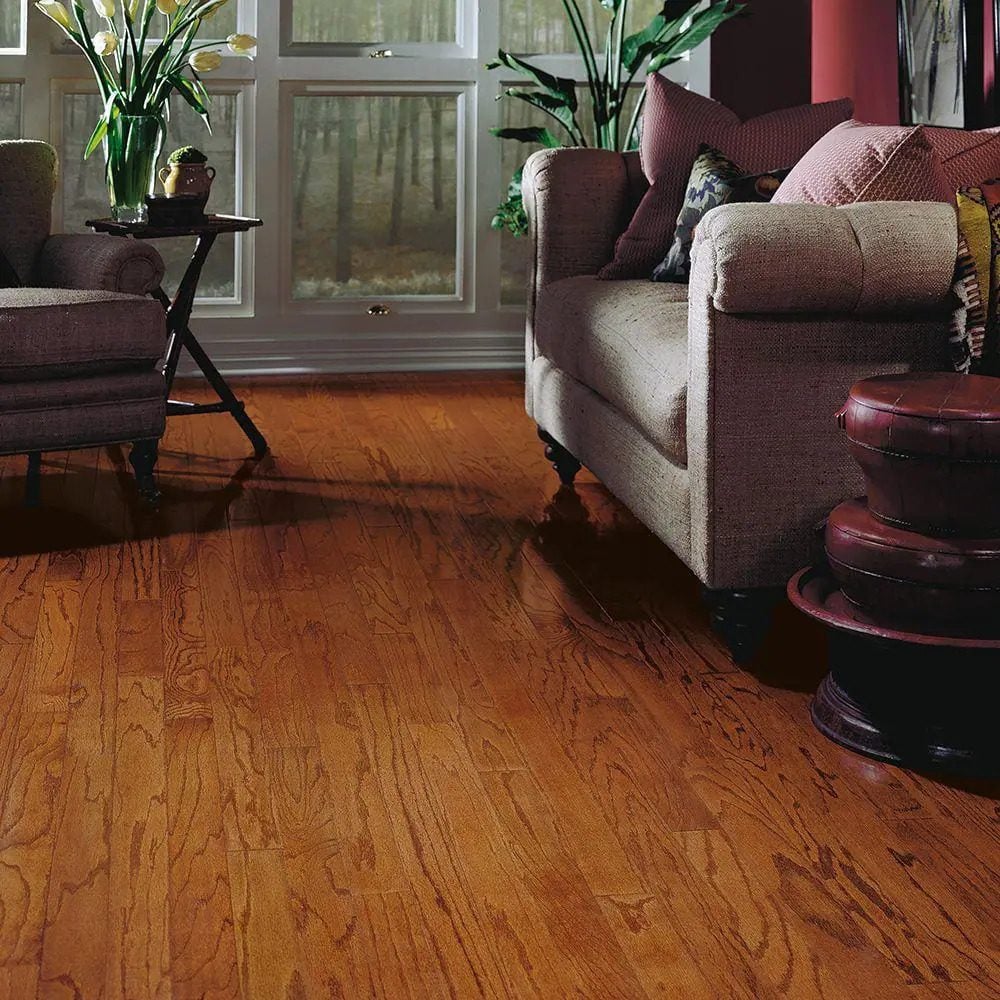Solid and engineered hardwood flooring are both great options for homeowners, each with their own benefits and drawbacks.
Our editors and experts handpick every product we feature. We may earn a commission from your purchases.Learn more.


Solid and engineered hardwood flooring are both great options for homeowners, each with their own benefits and drawbacks.
Our editors and experts handpick every product we feature. We may earn a commission from your purchases.Learn more.
Hardwood floors have been in style almost continuously since their introduction in the 1600s, making them a terrific option for homeowners seeking to add a classic, timeless look to their homes.
Engineered hardwood flooring, invented in the 1960s, provided a low-cost alternative to the traditional solid hardwood flooring. Nick Yahoodain, CEO of Advanced Builders and Contractors, has extensive experience with both types. He says both are viable options with distinctive pros and cons.
On This Page
Engineered hardwood flooring is a plywood or composite board topped with a real hardwood veneer. This veneer allows it to look almost exactly like solid hardwood flooring.
Solid hardwood flooring is a solid piece of wood. You can sand and refinish it many times over its lifespan.
Solid hardwood flooring tends to cost more than engineered hardwood flooring. We’re talking the planks themselves and the installation, which requires a pro. Yahoodain has seen engineered wood as low as $2.50/sq.ft., and hardwood as low as $4/sq.ft. and up to $12/sq.ft.
You should know that the initial cost of solid hardwood floors may be less of an issue over time. This is because it has a much longer lifespan than engineered wood, so you won’t need to replace it as quickly.
A homeowner can install engineered hardwood flooring. Many use a “click-lock” design that easily connects the boards together.
Solid hardwood flooring uses a more complicated tongue and groove joint that takes more finesse to ensure a tight fit. You also must nail it down to a subfloor, unlike engineered hardwood that can be simply glued down or “floated” above your existing floor with no adhesive at all. Keep in mind that floating floors cannot be refinished. Also, learn about repainting the wood floors.
Both engineered and solid hardwood flooring require regular cleaning to look their best and remove dirt and debris that can scratch their surface. Solid hardwood can be easier to keep clean because of its tighter fit. Yahoodain says solid hardwood stain will fill any cracks and holes, creating a smoother finish that’s easier to wipe clean.
Although engineered and solid hardwood flooring stand up to typical wear and tear, engineered planks will have a significantly shorter lifespan than solid hardwood. Since solid hardwood can be sanded and refinished many times, Yahoodain says it can last up to 100 years.
Because the veneer of engineered hardwood is thin, you can only refinish it once or twice. So, it will last between 20 and 40 years. Your floor’s lifespan will vary depending on your household and the type and frequency of foot traffic.
Yahoodian says engineered wood is typically more available in wider widths — up to seven inches — than solid hardwood, which is usually six inches wide. If you know you want extra-wide boards, you should opt for engineered wood.
While both are fine options, the best choice for your home will ultimately depend on your budget, installation limitations and design preferences.
Engineered hardwood is preferable if you want a classic hardwood look but lack the budget for solid options and prefer to install it yourself. Solid hardwood flooring is preferable if you want a floor that will last a lifetime and don’t mind the expense of professional installation.